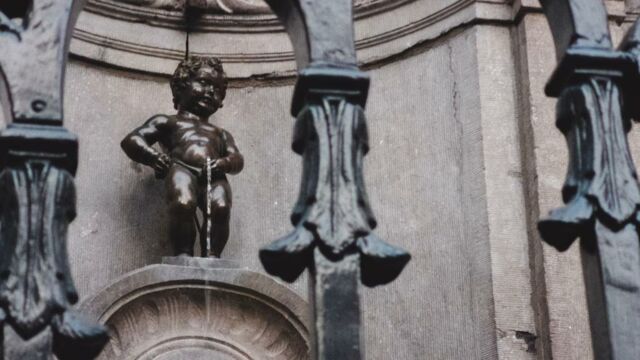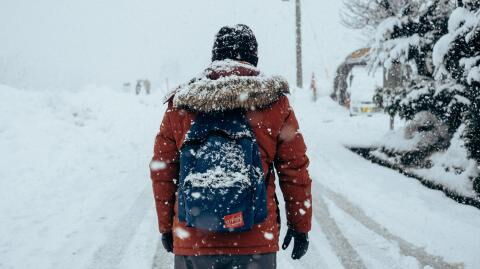You’re ready to hit the ski slopes and just like clockwork, your nose starts running and the urge to urinate immediately hits you, all the more so if you've had a drink beforehand. However, this is not for lack of having thought about making a visit to the facilities beforehand.
Discover our latest podcast
When the temperatures are cold, there's no denying that we more often have the urge to urinate. How can this be explained, is it just in our head?
Contraction of the detrusor muscle
Don't worry, the phenomenon is physical and logical, and is said to lie in the muscular contraction of the urinary organ. In 1918, the hypothesis was even demonstrated by science, more precisely by famous doctor Alfred Adler. By instilling cold water into a bladder, he was able to observe an unusual contraction of the detrusor, the muscle that forms the wall of the organ. This would explain the urge to go to the toilet.
In order to confirm this discovery, many other experiments on cats and humans have been carried out. And each time, bladder sensitivity to cold has been confirmed. But what exactly happens in the body?
Cold, contraction, and urination
The drop in temperature induces the stimulation of cold-sensitive receptors in the urethra and bladder, which cause the muscles to contract. This contraction increases bladder pressure and makes you want to urinate.
This is what Adrien Vidart, urological surgeon interviewed by Science & Vie, assures. More simply, the cold accelerates the concentration of blood towards the muscles, so that they remain warm. They find themselves contracted, tense, then provoking an irrepressible need. However, there is another explanation for this muscle contraction.
Increased urine production by the kidneys
As explained before, when a cold spell is felt, the body tries to retain its warmth as much as possible. In this way, it limits the blood flow to the extremities, such as your fingers and feet, which are more exposed to the cold. This is called vasoconstriction.
At the same time, the body speeds up its heart rate. The volume of blood going to essential organs increases at the expense of other parts of the body. The heart and brain are supplied with more blood, and the kidneys are put to work. They then filter more blood and produce more urine. The bladder fills up much faster, giving us this urge when we leave home and it's cold out.
The more you know!















